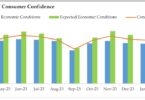F.P. Report
WASHINGTON DC: On Monday, United States Secretary of Commerce Gina Raimondo announced the United States of America will be temporarily suspending 232 tariffs on Ukrainian steel for one year. Ukraine’s steel industry is uniquely important to the country’s economic strength, employing 1 in 13 Ukrainians with good-paying jobs.
Some of Ukraine’s largest steel communities have been among those hardest hit by Putin’s barbarism, and the steel mill in Mariupol has become a lasting symbol of Ukraine’s determination to resist Russia’s aggression. Many of Ukraine’s steel mills have continued to pay, feed, and even shelter their employees over the course of fighting. Despite nearby fighting, some Ukrainian mills have even started producing again.
Creating export opportunities for these mills is essential to their ability to continue employing their workers and maintaining one of Ukraine’s most important industries.
Statement from Commerce Secretary Gina Raimondo: “Steelworkers are among the world’s most resilient—whether they live in Youngstown or Mariupol. We can’t just admire the fortitude and spirit of the Ukrainian people—we need to have their backs and support one of the most important industries to Ukraine’s economic well-being. For steel mills to continue as an economic lifeline for the people of Ukraine, they must be able to export their steel. Today’s announcement is a signal to the Ukrainian people that we are committed to helping them thrive in the face of Putin’s aggression, and that their work will create a stronger Ukraine, both today and in the future.
“I want to thank President Biden for his leadership in directing us to do all we can to support Ukraine’s people and their economy, as well as the Ukrainian leaders I have had a chance to work with over the past two months. Ukraine’s diplomatic leaders have been essential partners and advocates for their people, and we will continue to do all we can to support their work toward peace, freedom, and prosperity.”
Since Russia invaded Ukraine on February 24, the Department of Commerce has launched a series of new export control restrictions on Russia in partnership with three dozen allies, including 27 EU member states, Canada, the United Kingdom, Australia, New Zealand, Japan, South Korea, Switzerland, Iceland, and Norway.
The multilateral coordination on export controls and other areas has been impressive and led to swift development and implementation of powerful restrictions that are having a serious impact on Russia’s ability to sustain its aggression.






